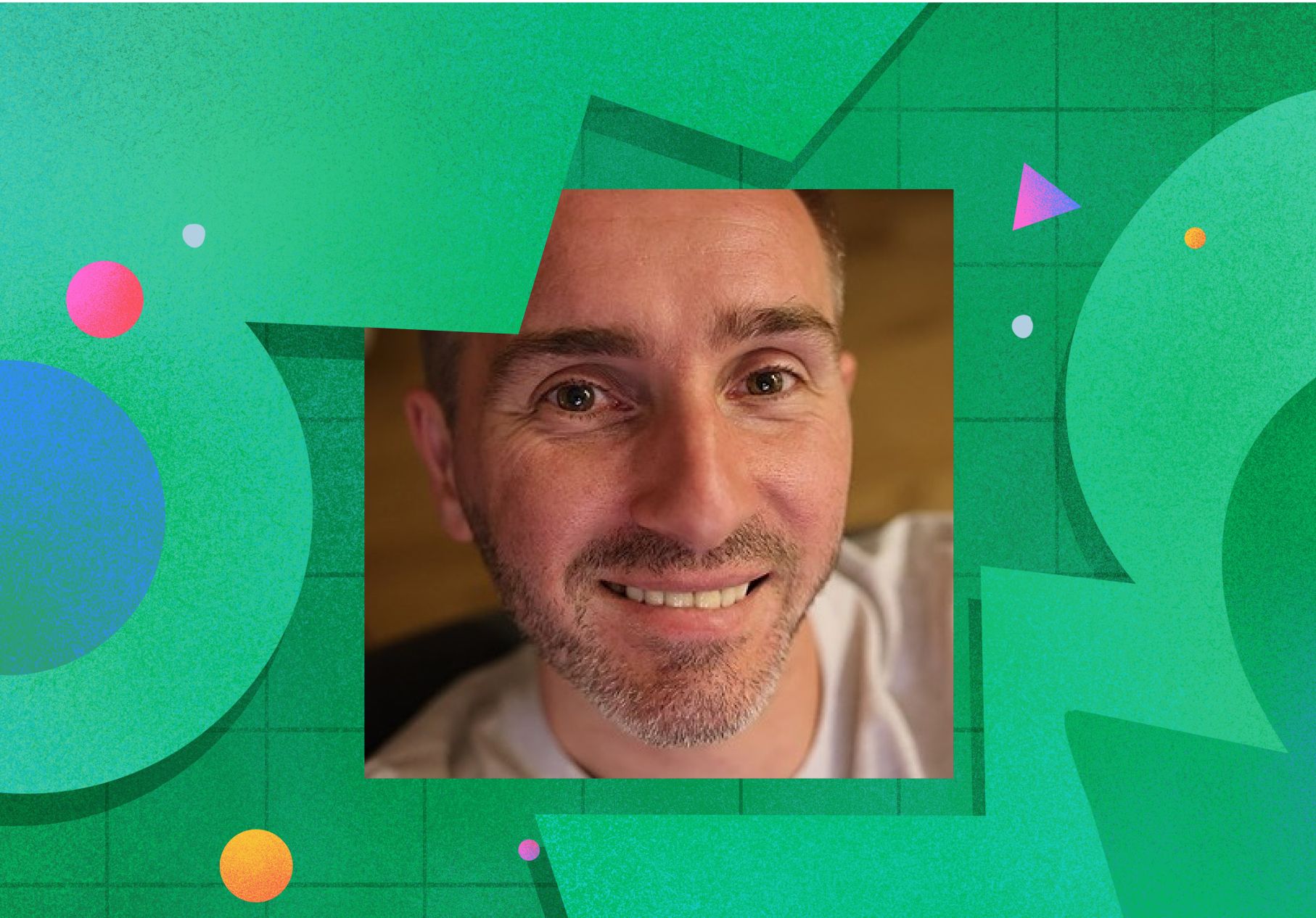Editor's note: Polywork's new Book Report series breaks down literature around multihyphenate topics such as the future of work, side income, and personal branding. Read our other articles in the series here and here.
Author Greg McKeown believes that determining what is truly “essential” in our lives can be transformative, giving us the productive, fulfilled balance we all seek between the personal and professional and thus making us “essentialists”.
But wait, what does being an essentialist even mean?
According to McKeown, “the way of the Essentialist is a relentless pursuit of less, but better. It doesn’t mean occasionally giving a nod to the principle. It means pursuing it in a disciplined way.”

Making time for what we deem to be “essential” feels like the fast track to failing before you’ve even begun. When everything is “essential” to everyone else around you — think work, family, friends — prioritizing the most important aspects of your life is daunting.
McKeown’s Essentialism aims to get at the heart of this dilemma. What is truly essential in our lives? And when we’re able to decipher that through unapologetic, ruthless prioritization, what new benefits or creativity can it unlock for us?
Here, my interpretation on what still rings true from McKeown's 2014 read, divided among the book's four sections:
1. Essence: What is the core mindset of the Essentialist?
2. Explore: How can we discern the trivial many from the vital few?
3. Eliminate: How can we cut out the trivial many?
4. Execute: How can we make doing the vital few things almost effortless?
What is the core mindset of the Essentialist?
McKeown argues that, at its lowest common denominator, the difference between the essentialist and non-essentialist is where they’re focusing their energy — the few versus the many pursuits. Therefore, by narrowing down to the few over the many, the essentialist has a greater probability of success by focusing their energy on what matters most.

For instance, the general mindset of the non-essentialist is they have to be all things to all people, and that every thing is the most important thing. In contrast, the essentialist identifies and selects the things that matter most, determining the trade-offs of focusing on a few items over everything.
My take: McKeown contends that are tendency to focus on the non-essential is rooted in faulty logic, and I agree. Our relationship with work is too often tied to production — the more things we check off the list equates to the quality of our work and potential for upward mobility. However, a focus on the non-essential items over a few extremely essential things will ultimately lead to undesired outcomes.
This tends to hold true in real life. Look at the last personal or professional task you’ve dedicated more time to, and hold that dynamic up against the quality of the output. More often than not, outperformance tends to be tied to the areas where we spend the most time. So, why do we still spread ourselves so thin? That comes down to the ongoing battle between the “trivial many” over the “vital few” described in the next section.
How can we discern the “trivial many” from the “vital few”?
McKeown spends the next section talking about focus and space. We think we understand what it takes to have the appropriate amount of space to pour energy into our side projects or any other critical aspects of our lives, but we’re wrong.
So how do we find space and focus? Disseminating what matters versus what does not.
This is truly the dilemma of the multihyphenate. When everything is important to everyone, you’re starting from a negative space and inching towards a moving target to make time for what matters most.
McKeown describes this as the “undisciplined pursuit of more” for the non-essentialist, who reacts to what’s most pressing rather than takes a moment to pause and reflect on what is vital or “really matters”.
My take: I’m not sure that there is a one-size-fits-all solution to this issue, since we all attach varying levels of importance to different aspects of our work and lives, whether it’s being by ourselves or surrounded by others, doing something creative or doing nothing at all to create space for something better.
It may come down to a simpler concept: what’s vital for you is ultimately what’s best, and it’s a huge bonus if those needs align with the world around you.
How can we cut out the trivial many?
There’s a great deal of power in saying “no” to the trivial many, but as a famous spider’s uncle once said, “with great power comes great responsibility.” Here, McKeown discusses the art of the “graceful no”, and the freedom that can be achieved with it, and the risks of going about it in the wrong ways.
Non-Essentialists avoid “no” at all costs, particularly in work environments, which McKeown boils down to the social awkwardness and pressure that comes with doing so. In contrast, Essentialists “dare to say no firmly, resolutely, and gracefully”, making sure to only say yes to the “things that really matter”.

McKeown goes on to show that the act of saying “no” doesn’t need to feature the actual word; rather, it’s finding ways to be resolute about the most important needs of a business (or in many cases, personal endeavor) and avoiding the “noncommittal yes”, which may be worse than saying no.
My take: Work, despite everything we’ve come to learn about it, should neither be political or a popularity contest, yet we find ourselves playing off both of those elements on a constant basis, especially when it comes to saying no to the tasks we know to be non-essential. I believe this is rooted in the idea of a company being your “family” — a tech culture mainstay that has far-reaching implications on interactions with your colleagues, the dynamics of teams, and overall, how things are done.
A desire to cut out the trivial, even with a graceful no, creates tension. When the idea of family is removed from company culture, the dynamic can shift to the professional over the familial, making it easier to spare feelings "for the greater good" of the company.
How can we make doing the vital few things almost effortless?
In the last section of the book, McKeown wants us to separate the “easy” from the “vital” tasks at hand. While it’s human nature to gravitate towards checking the items with the least friction off the list first, the best places to spend our efforts might be more time-intensive in the short-term, but better for us to be Essentialists in the long run.
Non-essentialists tend to take on too much work that ultimately does not matter and end up losing their sense of control over their work and lives. Essentialists, however, choose the work they do carefully, experiencing as much joy in the journey as the destination, and therefore “live a life that really matters,” McKeown says.
He notes that this is a quality of many successful leaders who don’t aim to be everything to everyone, pursue strategies that avoid the “everything is a priority” mentality, and listen to what is essential, rather than communicate in code.
My take: In an ideal world, this would be the top-down strategy adopted by more companies. However, numerous external factors, such as board pressure, outsized influence among executive team members, and the smartest voices not always correlating with being the loudest, leads to scenarios where companies fall into “non-essential” patterns.
Culture changes need to come from the top, but when there is reticence or outright resistance, change is tougher to achieve than inertia.
Final thoughts: An essential read?
Essentialism is best for investors, founders, and co-founders who are at the ideation or pre-fundraising stages of their companies. Change management tends to be difficult, if not impossible, once outside investments, rapid growth, and the trickle down impact of power struggles (or a combination of all three) take effect on a company.
A top-down approach to Essentialism as the bedrock of company values would put a stake in the ground from the earliest days, embedding it in the culture and setting expectations of every new employee. Those who enjoy company politics or that lean towards the easy tasks over the vital ones can be quickly weeded out during hiring processes so that the company can be intentionally built on a foundation of efficient — and essential — work.
Multihyphenates can benefit from the tenets of Essentialism. At its best, adopting the concept can open up more time to be spent on creative pursuits, or at minimum, provide a higher level of satisfaction that their 9 to 5 is being spent on what matters so that they can bring more energy to their non-work life, including side projects.



